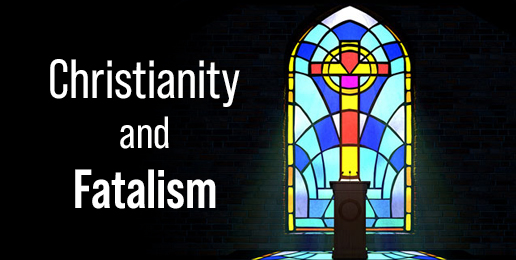
In articles like these, I, and other writers, tend to focus on the alarming decay of the Christian worldview and value system in the United States. And, since the enemy’s attacks on our culture truly are alarming, we are indeed making good use of our time in exposing them.

However, it’s also important to step back and consider just how much Christianity has influenced—and still persists in influencing—our culture. We still have many blessings to thank the Lord for, and there is still much to defend.
Sometimes, this is best seen by comparing the West as a whole—so influenced by Christianity that it was once known as “Christendom”—to other cultures that have not been so influenced by the Bible.
One modern intellectual who has done just that is Vishal Mangalwadi, an Indian-born Christian philosopher, in his book, The Book That Made Your World: How the Bible Created the Soul of Western Civilization (2011). His ideas are definitely worth thinking about.
On paper, the “West” and the “East” are hemispherical conventions; in reality, they are distinct cultural worlds. While the European tradition displays a marked concern for humanitarianism, the Indian tradition has been shackled by a demeaning caste structure.
While Western nations see the right to life as a “self-evident truth,” it does not similarly manifest itself in India’s value system. Now, Eastern culture has not lacked wealth, scientific minds, or ethical thinkers; historically, it has often equaled or even surpassed the West in these ways.
Yet, the East has historically lacked one basic ingredient which the West was blessed to receive: a biblical worldview.
As Mangalwadi notes, the culture in which he grew up has been permeated by a fearfully fatalistic worldview: “They put their ‘faith’ in fate, not in a living God who planned for them a destiny and enabled them to fulfill it” (p. 28).
Because they believe their lives are determined by fate, Mangalwadi’s Indian countrymen have tended to view the evils of the world around them as inescapable calamities to be cursed, rather than obstacles to be overcome by the help of a sovereign God. And because of this crippling belief, Mangalwadi saw that India was gripped by debilitating perspectives on helping the needy.
On the other hand, the Bible’s twin doctrines of creation and sin provide a safety net of truth against such a harmfully deceptive worldview. First, God has created a world separate from Himself, a world that He explicitly called very good. This was the way things should be. Yet, God’s originally perfect creation was corrupted by man’s disobedience and now suffers the lawlessness, violence, suffering, and death of the Curse. This is the way things are now.
But, just as Christ sacrificed Himself to lead us away from our current depravity and toward the glory of how we should be, so Christians recognize that the earth we live in is broken in its current state, and by God’s grace it is possible to redeem it toward what it should be.
This message—that brokenness is redeemable—has permeated Western culture and given real, grace-filled meaning to ideas such as disaster relief and medicine.
Accordingly, Western cultures have far surpassed fatalistic Eastern cultures in their respect and care for human life. Mangalwadi provides a couple of poignant examples.
He recounts how a hailstorm once struck his town and destroyed the villagers’ crops. However, instead of springing into action to help each other, the villagers responded by “[cursing] their fate, their capricious stars, and their cruel gods of rain and hail” (p. 32).
Neither the powerful politicians nor the religious leaders mentioned the idea of relief, and when Mangalwadi compiled a relief proposal, his community was stunned at his idea. He had to fight an uphill battle to simply provide charity to the suffering, because his Christian faith was a peculiar oddity in a culture that had resigned itself to cursing affliction instead of curing it.
The Indians around him believed that, under the dictates of fate, they were locked into their present circumstances. But as a Christian, Mangalwadi knew his God was the God of all, not bound by any laws of fate or karma, and that He commands us to help those in need.
Charity for the afflicted is virtually taken for granted in the West’s value system. Churches, businesses, individuals, and even governments in the West all seem to recognize the basic value of giving to those in need. But Mangalwadi found that it was not always so in his native culture.
Mangalwadi saw similar theological errors play out in an even more tragic way. While Western cultures have developed sophisticated medical systems, pursuing the ancient Christian imperative to help all who are afflicted, Mangalwadi’s native culture was permeated with a fatalistic caste system which prompted his people to devalue those born into lower castes.
At one time, his wife discovered a girl of low caste wasting away from malnutrition in her own family’s home. Even though Mangalwadi and his wife offered to take the girl to the hospital and cover all expenses, her mother and father refused to let her receive lifesaving medical treatment. Further, the neighbors gawked at his efforts to save someone of such a low caste. Tragically, the child eventually died “with the implicit consent of a whole village” (p. 64).
In this instance, fatalism proved literally fatal. The girl’s parents knew their daughter would grow up in a low caste and was doomed to live a life of poverty and suffering. They did not believe they could transcend fate or karma, so they shortened their daughter’s miseries by letting her die.
As a Christian, however, Mangalwadi knew that God is sovereign over all, and that He has created man in His image, so every human retains special dignity and is not locked into the confines of fate. Mangalwadi unsuccessfully fought the prevailing cultural winds to simply save a little girl’s life.
Heartbreaking stories like this remind us that spiritual belief systems underlie so much of a society’s reality.
When Western humanitarians aid struggling Eastern countries, they often do so with the belief that a dearth of physical resources demands an influx of physical resources – as long as a nation receives more financial aid, better medicine, or superior technology, prosperity must necessarily follow.
But the West has surpassed the East in its care for human life, not because of superior intellect or resources. Rather, it is in a large part because Western civilization is permeated with Christian theology, while the East has long lain in the grip of fatalistic lies.
Mangalwadi’s experience in India demonstrates that physical resources are only as useful as the theology that wields them.






















